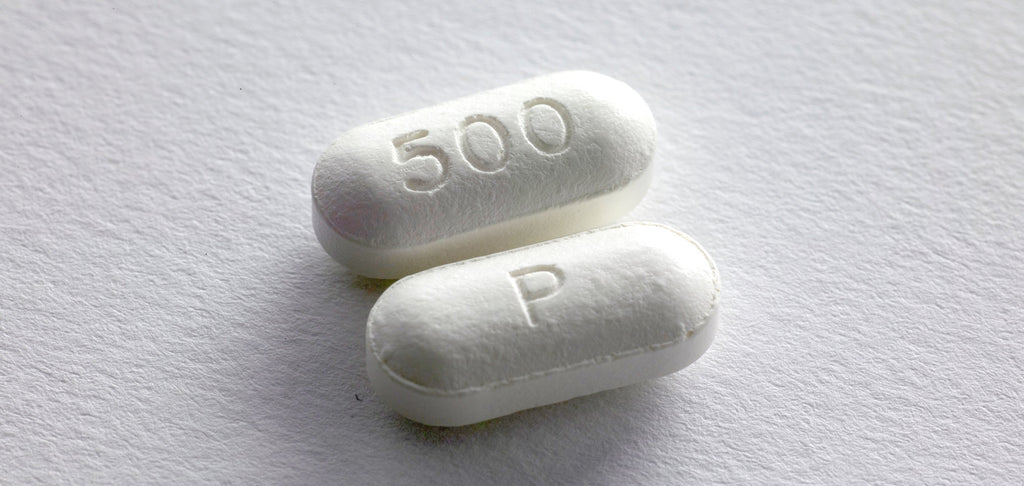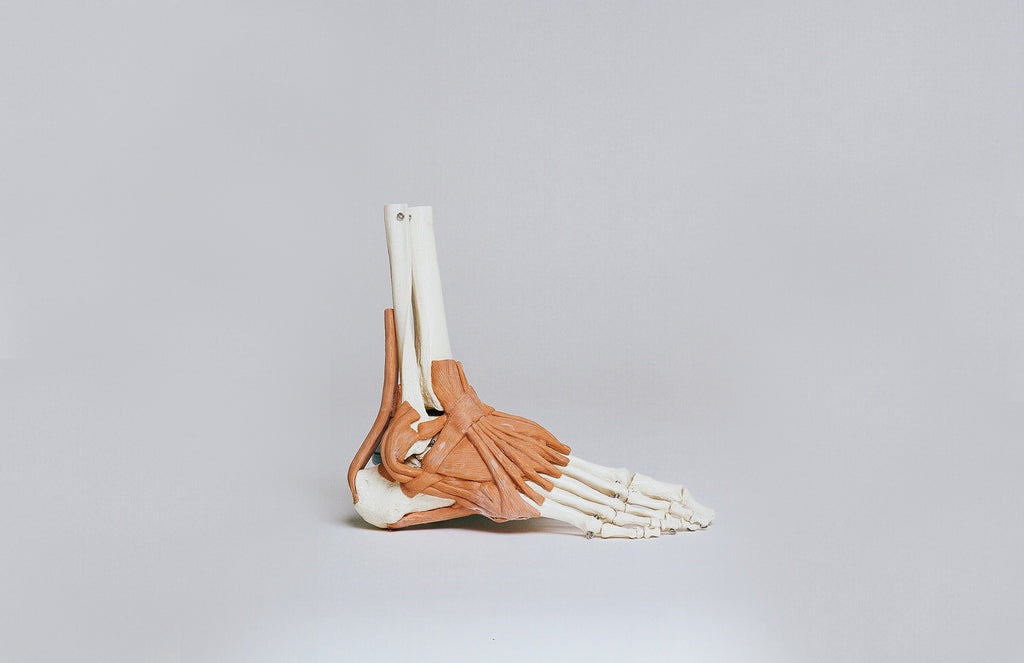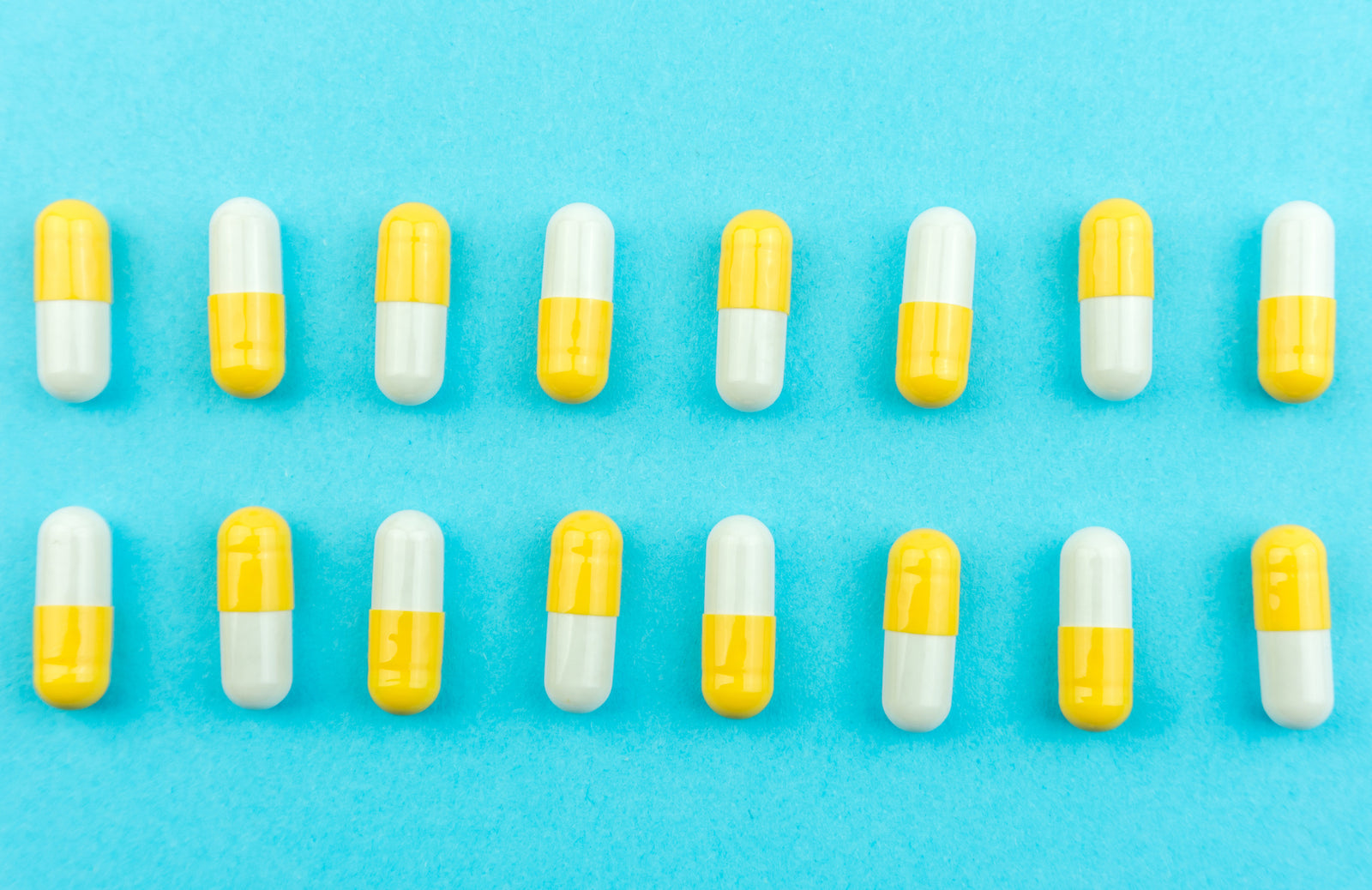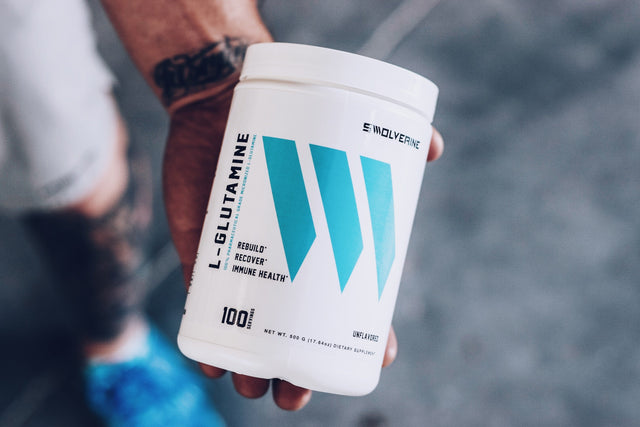Taking ibuprofen before or after a workout seems harmless. I mean, I’ve done it, you’ve probably done it, and nearly 70 percent of endurance athletes surveyed about NSAID use say they down the pills before or after training sessions, too. Athletes are familiar with pain, and so the saying goes, “no pain no gain”. Unfortunately, if you’re masking your pain and popping pills in order to avoid a completely natural physiological response to pain from exercise and activity in the first place, emerging research suggests you may be doing more harm than good.
What Is Ibuprofen?
Ibuprofen is an over the counter (OTC) nonsteroidal anti-inflammatory drug (NSAID) that works by reducing hormones that cause inflammation and pain in the body. Some of the most popular brand names that ibuprofen is sold under are Advil, NeoProfen, Advil, Motrin IB, Ibuprin, and more.
Acetaminophen vs. Ibuprofen

Before we go too far, this is something we’d like to clarify. Not to be confused, acetaminophen belongs to a class of drugs called analgesics, not NSAIDs as ibuprofen is classified. While both drugs are proven to decrease pain, ibuprofen also decreases inflammation, which is why it’s more of a go-to over the counter pain management pill for athletes and exercise enthusiasts alike. Valuable studies conducted in the last 10 years support growing evidence that ibuprofen taken after a workout may be causing more harm than good, specifically to the GI tract in terms of damage and the musculoskeletal system in regard to muscle recovery, growth, and inflammation.
Gastrointestinal Damage
Recent findings suggest that anywhere from one quarter to one-half of elite athletes are hampered by the gastrointestinal symptoms that may deter them in training and competitive events. Among some of the recommendations for those exhibiting symptoms, adequate hydration and avoidance of excessive use of medications, like ibuprofen, are suggested. Strenuous exercise, especially combined with dehydrated states like those endurance athletes experience, are the causes of nearly 70% of athletes. Symptoms include nausea, vomiting, abdominal pain, and diarrhea. [R]
Another study from 2006 studied a group of ultramarathon racers, who had taken ibuprofen before their race, actually had higher levels of inflammation and intestinal permeability, as compared to competing athletes who did not ingest the NSAID. To further the research, the study also analyzed whether or not the athletes had more or less muscle damage or soreness, and the ibuprofen consequently did not help these symptoms in the athletes that took the OTC drug. [R]
RELATED ARTICLE: What 14 Studies Say About Taking L-Glutamine For Gastrointestinal Health
Compromised Absorption of Nutrients Post Workout
Strenuous exercise is known to change barrier function, naturally, to a decreased state. When intestinal integrity is impaired, increased permeability of the gut lining occurs (leaky gut) and absorption is altered. This lining plays a role in the flux of ions, water, nutrients, and other molecules while protecting the body against harmful bacteria and invading microorganisms. The study from 2016 on exercise-induced intestinal damage could have an effect on the quality and amount of food-derived bioactive peptides that are able or unable to cross the epithelial barrier, affecting absorption. [R]
When athletes use NSAIDs, like ibuprofen, to prevent anticipated exercise-induced pain, thereby putatively improving physical performance, the effect actually results in potentially hazardous effects on GI mucosa. A 2012 study on the aggravation of exercise-induced intestinal injury by Ibuprofen in athletes revealed that ibuprofen aggravates the exercise-induced small intestinal injury and decreases the rate of absorption of nutrients within the GI. The study blatantly concludes that nonsteroidal anti-inflammatory drugs consumption by athletes is not harmless and should be discouraged. [R]
Slowed Muscle Growth & Muscle Recovery

When an athlete is sore, it’s due to microscopic tears in the muscle. Once the tears happen, the body responds to the micro-injury by producing hormones, formally known as prostaglandins, which work within the body to reduce inflammation. Without micro-tears within the muscles, you wouldn’t be able to get stronger, so this inflammation that occurs isn’t necessarily a bad thing. As mentioned previously, NSAIDs, like ibuprofen, work to reducing hormones (prostaglandins) that cause inflammation and pain in the body. [R] Thus, taking ibuprofen prior to or after a workout can impede the body’s natural, inflammatory recovery process, by reducing the inflammation at the site of the tear.
In 2012 Dr. Kim van Wijck, a surgical resident at Orbis Medical Center in the Netherlands, led a small study to determine the combined effect of exercise and ibuprofen. The study was published in the December 2012 issue of Medicine & Science in Sports & Exercise, of nine healthy, active men, finding that blood levels of a protein indicating intestinal leakage were much higher when the men combined endurance exercise with ibuprofen than not. Additionally, the same protein levels remained elevated for several hours after the exercise and ibuprofen.
Dr. van Wiick’s findings support that if the absorption of nutrients is compromised from small amounts of bacteria and digestive enzymes leaking regularly into the bloodstream (compromised intestinal integrity), this can also affect the ability of an athlete’s muscles to recover, refuel, and regenerate. [R] Another study in 2017 found that when mice were given NSAIDs for minor muscle injury, their bodies actually produced fewer active stem cells, leading to weaker muscles even after the injuries had healed. [R]
If the muscles exercised during endurance activity are unable to recover via the nutrients absorbed in the GI tract, then, unfortunately, studies have concluded the athlete is at a higher risk for increased soreness, inflammation, poor mobility, overall recovery, and even injury.
RELATED ARTICLE: 11 Ways To Reduce Post-Workout Inflammation
Higher Levels of Systemic Inflammation
A famous study by David C. Neiman, a professor of Health and Exercise Science at Appalachian State University conducted the study in 2006 on runners from the Western States 100-Mile Endurance Run. Neiman discovered that the endurance athletes who regularly used ibuprofen prior to and after races actually had small amounts of colonic bacteria in their bloodstream.
The bacterial incursion was a direct result of the weakened intestinal lining, due to frequent usage of the ibuprofen, that lead to higher levels of systemic inflammation. [R] The findings conclude that those athletes who frequently use ibuprofen have higher levels of overall bodily inflammation. Which happens to be the exact opposite of why most people take ibuprofen pre- or post-workout in the first place, unfortunately.
Poor Tendon Health And Ligament Repairment

Does ibuprofen help with sore muscles from working out? While NSAIDs are often given or taken in order to blunt pain and inflammation within the tendons and ligaments, many studies have found that instead of contributing to healing after a workout, NSAIDs actually slow healing.
As stated prior, taking ibuprofen before working out may increase the risk of musculoskeletal injuries, but what we didn’t mention above, was that this is a direct result of the NSAID impairing the synthesis of collagen. Collagen is a structural protein, consisting of nearly 30% of the human body, specifically found in the cartilage, tendons, muscles, and bones. [R]
When ibuprofen depresses the body’s natural ability to synthesize collagen to repair tissues, tendons, and ligaments, it also reduces the body’s response of muscles to exercise while decreasing bone formation, lessening the benefit from the exercise altogether. [R]
Long Term Consequences Unclear
While the use of ibuprofen for athletes and post-workout inflammation is still being studied to this day, the long term consequences are unclear. What we do know? That there’s enough research out there that’s compelling enough to say that while the long term consequences are not known at this point, the short term consequences should be enough to give athletes a reason not to use the drug prophylactically.
Ibuprofen May Cause More Harm Than Good
As the question was beckoned, should you take ibuprofen after working out, or even before working out? The research concludes that it’s not encouraged. Sure, when you’re sore, you’ll want to do something that helps relieve the pain, but the focus should be on optimizing your recovery with nutrition and proprietary-blend free supplements, rather than turning to nonsteroidal anti-inflammatory drugs for relief. Does ibuprofen affect sports performance? While performance may not be affected, it’s a reasonable assumption that ibuprofen has no positive effect on sports performance or recovery, so it’s best to be avoided.
If your goal is to get stronger, pain is just part of the game. For some injuries, pain relievers may be the best go-to so that your body can heal, so use this rule of thumb: if you’re sore from a workout and you aren’t injured, revel in the fact that your body has a natural healing process that includes inflammation, and that you have the opportunity to fuel it with your nutrition and supplementation.
Do You Regularly Take Ibuprofen Pre or Post Workout?
Time To Work On Repairing Your Body’s Natural Repair System Via The Synthesis Of Collagen And Decrease The Risk Of Musculoskeletal Injuries With Swolverine’s Unflavored Hydrolyzed Collagen Protein Powder. Workout Harder, Supplement Smarter and Recover Better.
SWOLVERINE is an endurance athlete and active lifestyle brand. Made for the elite athlete, and the strong-willed our products were designed to fuel your athletic performance. We perform when you perform.
We believe that everyone can optimize not only their athletic performance but their human potential. The way we believe we can optimize performance is through transparency, clinically effective doses, and clinically proven ingredients with evidence-based outcomes. We provide the nutrients you need to power your active lifestyle.















